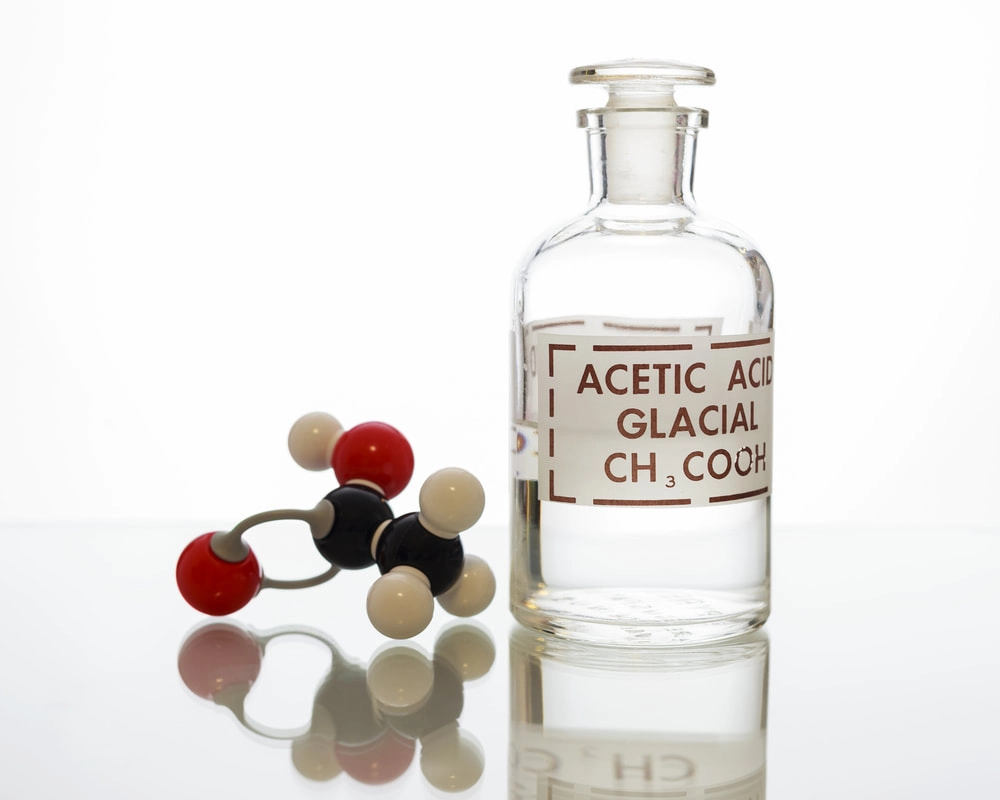- Details
Application of the acetic acid

The acetic acid is formed by fermentation. It is a chemical compound with a very wide range of applications. Its properties are appreciated, among others, in the food and cosmetic industries - although in both cases other advantages are important. However, it is very important that it is used for its intended goal, since too large quantity of this substance can prove harmful to humans. What might be the uses of the acetic acid?
Acetic acid in the food industry
The food industry uses the acetic acid mainly for food preservation. This makes it possible to extend its shelf life. In addition, it prevents the growth of fungi and bacteria. This translates into delaying the spoilage of the food product. Only a small number of people are aware that this substance is very popular and used by almost everyone in the form of the vinegar:
- apple,
- wine,
- spirits,
- rice.
However, this is a highly diluted version - making it safe for the body. Nevertheless, do not overdo the consumption of any of the types of vinegar mentioned, as too much can be harmful and cause irritation of the mucous membranes.
Use in cosmetics and medicine
The acetic acid is also very popular in the cosmetic industry. It can be an ingredient in cosmetics with soothing properties, such as burns or insect bites. It contributes to accelerated healing of inflammations such as herpes.
In medicine, on the other hand, it is used to treat ringworm, headache and sore throat.
It is widely believed that the acetic acid is not the healthiest substance to consume. Meanwhile, vinegar itself can be used for stomach indigestion. Just drink a small teaspoon of a vinegar after each meal to get rid of them.
Other industrial applications
See also: WHAT ARE APPLICATIONS OF THE HYDROCHLORIC ACID?
In addition to the above examples, the acetic acid also has other industrial applications. It can be successfully used as a cleaning agent. It is excellent at removing scale, for example, from shower stalls. It is also increasingly used in the textile industry. However, it should be borne in mind that it is a corrosive substance, so it is advisable to protect your hands when using it - an allergic reaction may occur in sensitive individuals.


